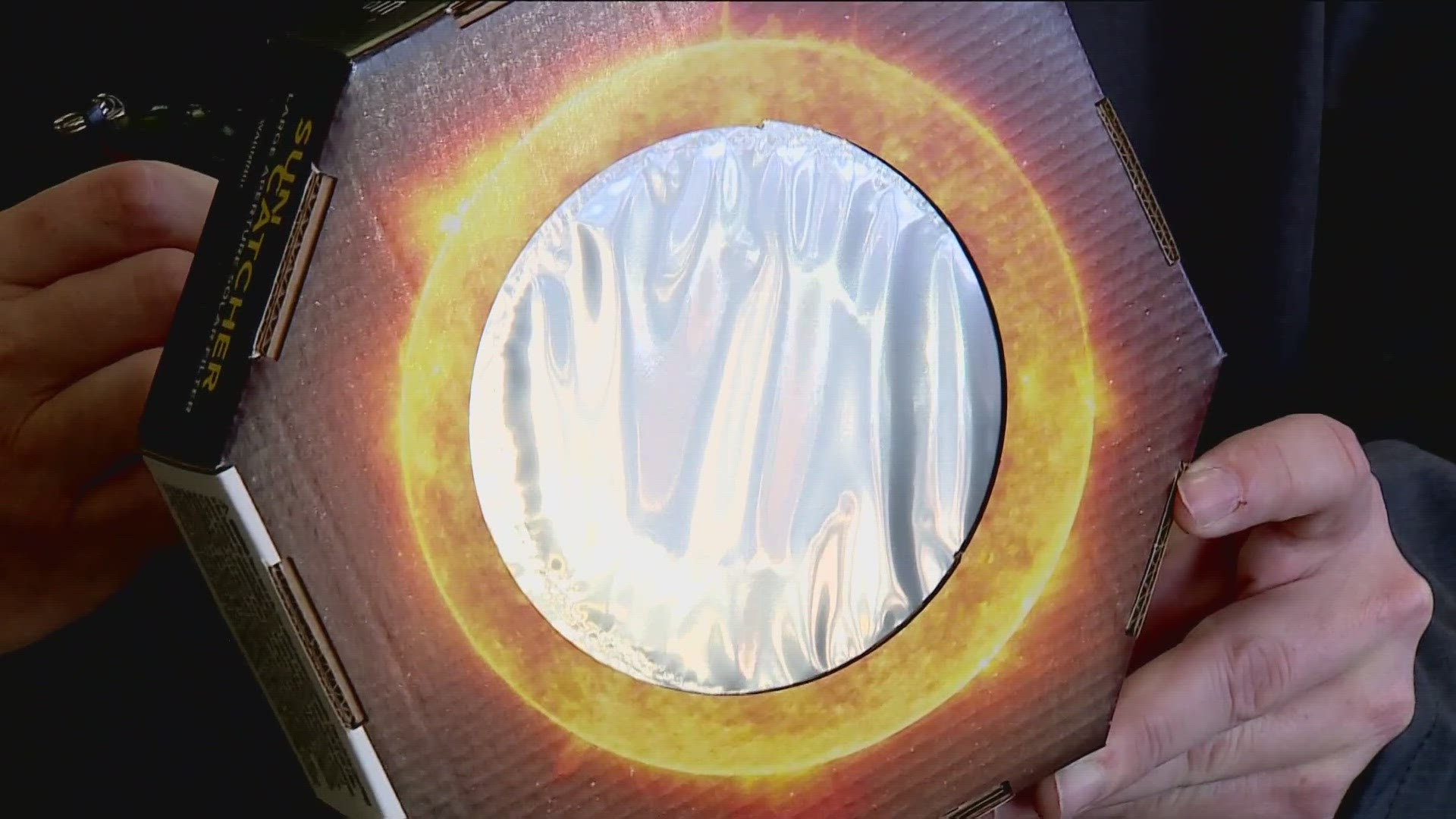ARKANSAS, USA — As you know by now, if you’re going to look up at the total solar eclipse on Monday, you have to protect your eyes.
What you might not have heard yet, is that your camera needs to be protected too. That also goes for the lens on your phone.
While the hype around the total solar eclipse has been building for months, Bedford Camera & Video in Fayetteville has been preparing for much longer.
"For the last year-and-a-half, two years we've been sort of on track to get ready for it,” district manager of Bedford Camera & Video, Aaron Dotson, said.
He said customers with a wide range of photography skills have been coming in to protect their investments.
"You don't want to have your camera pointed at the sun before putting a filter on it regardless,” Dotson explained. “You can remove that filter during that time of totality just because the moon will block the sun, but other than that don't leave it pointing up at the sun uncovered."
"So basically you're going to measure out where the lens is going to fit, and the wedges will go in and you cut them to fit so it's snug around the end element of that lens,” Dotson explained while demonstrating. “You apply the adhesive backing onto that, make sure nothing is sticking out, so it doesn't get in the way, and you fit it in there after you've cut it, so that way when you're pointing your camera up, you've got coverage and the wind's not going to blow it off."
You can also use mylar filters to hold up against a phone’s camera.
If you don’t protect your lens, you could fry it.
"The lens works like a magnifying glass,” Dotson emphasized. “And so with the sun directed down in, it could make its way through the lens into the camera and cause damage to your image sensor. If it's a DLSR it could ruin the mirror, the curtains, anything that finds its way in there, it's going to pinpoint that and render your camera useless."
Most importantly, protect what you can’t replace: your eyes.
According to NASA, if you’re watching the total solar eclipse through your camera, having the mylar filter on your lens is critical. This also applies to telescopes.
NASA has tips on its website about best practices for shooting an eclipse.
Watch 5NEWS on YouTube.
Download the 5NEWS app on your smartphone:
Stream 5NEWS 24/7 on the 5+ app: How to watch the 5+ app on your streaming device
To report a typo or grammatical error, please email KFSMDigitalTeam@tegna.com and detail which story you're referring to.

